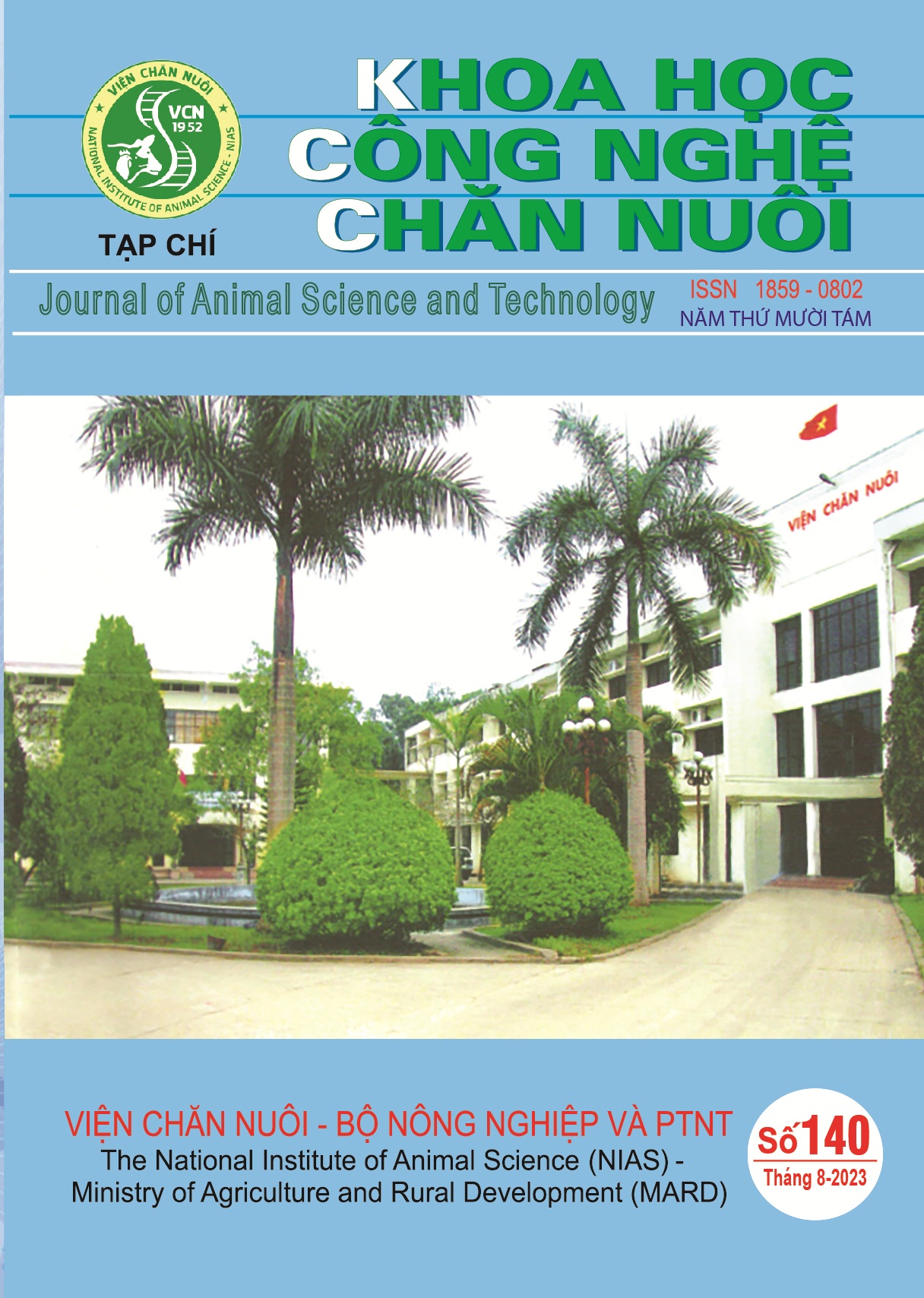Effects of supplementation Tra fish (Pangasianodon hypophthalmus) oil to elephant grass and concentrate as substrates on in vitro greenhouse gas emissions and organic matter digestibility
Experiment was conducted to evaluate in vitro CO2 and CH4 production effected by Tra fish oil (TFO) levels. The experimental design was a completely randomized design with 5 treatments and 3 replications. The five treatments were supplementation of five levels of TFO 0; 1.5; 3; 4.5 and 6.0% corresponding to TFO0; TFO1.5, TFO3, TFO4.5 and TFO6, respectively, to Elephant grass mixed with 20% of concentrate (DM basis). Rumen fluid of cattle fed Elephant grass mixed with 20% of concentrate was used as inocculum. Gas production was measured at 0; 3; 6; 9; 12; 24; 48; 72 hours. The concentrations of CH4 and CO2 were analyzed at 24, 48 and 72 hours. The results showed that the in vitro total gas, CH4 and CO2 production from 0-72 h were significantly different (P<0.05) among the treatments and they were gradually abated when increasing CFO levels from 0 to 6%. CH4 production (ml/g OM) at 72h decreased from 37.6 - 23.4 and was inversely proportional to levels when TFO was added (0-6%). However, the in vitro DMD and OMD values were also reduced (P<0.05) from the TFO0 to the TFO6 treatment. It was concluded that supplementation Tra fish oil from 0 to 6.0% to the Elephant grass with 20% concentrate gradually reduced greenhouse gases production, however the DM and OM digestibility was also decreased. The optimal level of Tra fish oil supplementation in the diet includes Elephant grass and 20% concentration was 3% (DM basis).

